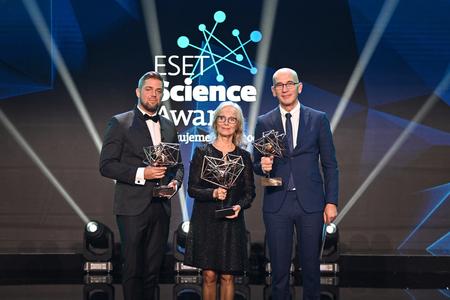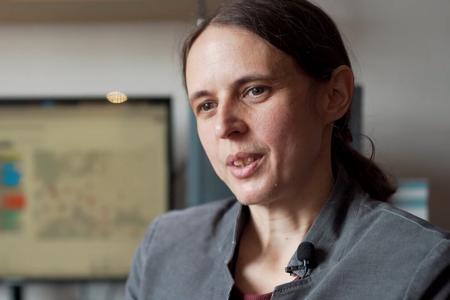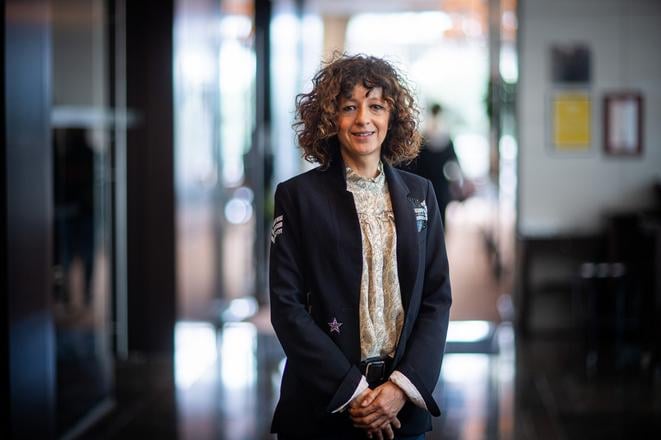In 2020, Emmanuelle Marie Charpentier made history when she picked up the first science Nobel Prize ever won by two women only. A decorated scientist who in 2015 was in Time magazine’s 100 most influential women in the world, she is best known for her work on molecular mechanisms.
In Bratislava for the announcement of next year's ‘Starmus’ science and art festival in Slovakia which focuses on the challenges facing humanity and how to stop the destruction of the planet, she sat down with The Slovak Spectator to talk about the microbial universe, the mistaken belief that humans are at the top of the food chain, and the potential for a bacterial, or fungal, pandemic.

Some might describe your work as involving touching the fabric of life itself. Would you say the work you do has given you some kind of deeper understanding of life itself?
Hunched over a table, working on living organisms and trying to understand the mechanisms of life, I think that over time you acquire some sort of understanding. I guess one type of understanding I acquired is how humbled we can be as biologists when we realise how far we are from understanding the complexity of life.
Let’s make a comparison. Let’s say what we know is the size of a tennis ball. What size would the ball be if it represented what we don’t know? Planet-sized?
I think universe-sized.
The entire universe?
I would say so. If you take the microbial world and all the other species that are waiting to be discovered, if we are to understand all their genes and their functions, and mechanisms involved. As a microbiologist I see that the microbial world is exceptionally intelligent, it can communicate, it can react, they have evolved wonderful strategies, they are extremely powerful cellular machines.
To stay up to date with what scientists in Slovakia or Slovak scientists around the world are doing, subscribe to the Slovak Science newsletter, which will be sent to readers free of charge four times a year.
Would you say humanity is at the top of the food chain?
At the top? I am not so sure.
We like to think so.
Yes, but we are made of bacteria, and we should not forget that. There are more bacterial cells in our body than our own cells. When we start to destroy the ecosystem that contains the microbial world, that can affect us as well. We are interdependent. Jane Goodall echoed this during the Starmus press conference. We saw this during the pandemic. If you start to disturb different aspects of the planet, then nature becomes dysregulated and we start to see new phenomena. Microbes will remain after humanity ceases to exist. In that sense they are at the top of the food chain. Whatever destroys humanity, at the end of the day we will never be able to destroy the entirety of the microbial world, some of it will always survive. That is the reality.

The CRISPR/Cas9 method* is an immensely powerful tool. Some controversial experiments have already been carried out, for example in China. Do the potential consequences of its misuse haunt you like nuclear weapons haunted the scientists that participated in the Manhattan project?



 Emmanuelle Charpentier. (source: SME - Marko Erd)
Emmanuelle Charpentier. (source: SME - Marko Erd)